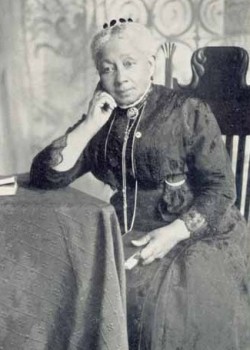Susan Smith McKinney-Steward (1846–1918) was born in Weeksville, Brooklyn, and grew up on her father’s pig farm at the corner of Fulton Street and Buffalo Avenue. As a child, she studied with the leading organists in Brooklyn, then taught music in the public schools of Washington, D.C., and later led the choir and played the organ for twenty-eight years at the Bridge Street A.M.E. Church in Brooklyn.
But she saw greater challenges ahead. She applied for and was admitted to the newly created New York Medical College for Woman. In 1870, she graduated as valedictorian and became the first Black female doctor in New York State, and only the third in the country. Practicing medicine from her offices on DeKalb Avenue in Brooklyn and from an office in Manhattan, she helped to found the Brooklyn Women’s Homeopathic Hospital and Dispensary at Myrtle and Grand Avenues in 1881. In 1882, she served on the medical staff of her alma mater, the New York Medical College and Hospital for Women, and pursued postgraduate studies at the Long Island Medical College in Brooklyn from 1887 to 1888. She also worked as the resident physician at the Brooklyn Home for the Colored Aged, and served on its governing board from 1892 to 1895.
Dr. McKinney-Steward became resident physician and a faculty member at Wilberforce University in Xenia, Ohio, in 1898, and she remained there until her death. She married twice: to Rev. William McKinney (who died in 1895), and to U.S. Army Chaplain Theophilus G. Steward. She was also active in the temperance and woman suffrage movements.
